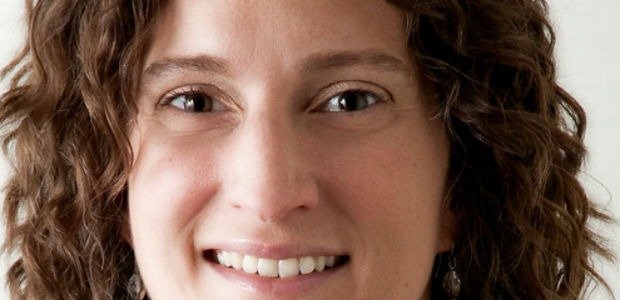Are you wanting to know more about teaching abroad or launching a new career? Lisa Rooney, Vice President of Bridge, told us about her experiences getting started with teaching English as a foreign language abroad.
Q: Why did you choose to go with Bridge over other providers?
A: Truthfully, I chose Bridge because I had found a job opening at Bridge in Santiago, Chile. I thought my chances of getting a job with Bridge would be better if I got certified through them. But, I also chose Bridge because they were an authorized CELTA training center, so I knew that if Cambridge ESOL had approved them, they must be good!
Q: Were there other options you were considering besides teaching abroad?
A: Not really. I was a foreign language teacher in the States and I wanted to continue in that field. However, I was interested in working with adult students, which I had not previously done. Teaching English in Chile was the perfect place to get that experience.
Q: What’s your background and experience teaching in the USA?
A: I taught high school French and Spanish for 7 years, and preschoolers and kindergarteners for 2 years before moving to Chile. I have always loved teaching, although my time in the public schools in the U.S. led to burnout.
Q: Did you think that when you accepted your first teaching assignment that you would pursue TEFL as a career and not just as a temporary assignment?
A: No! I had planned to be abroad for one year to brush up on my Spanish skills. I never thought that my first job teaching English as a foreign language in Chile would have led to an entirely new and exciting career in international education!
Q: What were the major differences in teaching abroad versus teaching in the US? What was different in terms of how you had to teach, educational culture abroad, how to respond to a different set of students, etc?
A: The biggest difference was that my students in Chile were business professionals. They were very motivated to learn and really interesting to work with. I learned a lot about Chilean culture through conversations with my students. I didn’t have to deal with any discipline problems, parents, or public school politics. Just people who wanted to learn. Very refreshing!
Q: What did you miss from the American experience while in South America? How did you adjust to that new lifestyle?
A: I guess I missed the ease with which you can get simple errands done in the U.S. Everything in Chile seemed to take longer and be a bit more bureaucratic. At the same time, I liked having to slow down a bit. It helped me to become a more patient person and to realize that not everything in life should go at lightening speed.
Q: What did you like best about working abroad? The least?
A: I liked discovering a new way of life in a new culture the best. I also really liked discovering all of the delicious food in Chile! In Santiago, what I liked the least was the air pollution.
Q: What do you wish you would have done differently?
A: Nothing. I think that part of living abroad is just being open to new and different things. There is no way to ever be 100% prepared for everything. My advice is to go with the flow.
Q: Is this sort of work better for people who want to make a career out of TEFLing, or is it also suitable for people who are just looking for something different and interesting to do for a year or two?
A: It is suitable for both. In fact, many of my co-workers were only planning to stay in Chile for a year or so. Some then wanted to teach in a different country and some wanted to return stateside. However, for those planning a career in TESOL, teaching abroad is a great way to gain varied experience and to improve cultural competence.
Q: How did you go about learning the language of the country you were working in? What worked and what might you recommend?
A: Well, I made a conscious effort to immerse myself as much as possible in the Chilean language and culture. I lived with a Chilean family and every night we had dinner together and watch a telenovelacalled Machos! Soap operas are a great way to learn a foreign language, especially when you get to share the juicy stories with your host family! I made friends with Chileans and tried to socialize with them as much as possible. I also took Spanish classes at Bridge because they allowed English teachers to “trade” English teaching hours for Spanish classes. The classes really helped with fine-tuning my skills, while my Chilean friends really helped me sound like a local.
Q: What are some benefits of gaining some teaching experience, even for people who are not sure that they will pursue it as a long-term career?
A: The benefits are countless! When you teach, you have to develop so many people skills, leadership skills, and management skills that are applicable to any career. You must learn to manage many different personality types in a new culture. You must learn to plan meticulously and to present material in a clear and comprehensible way. You must show confidence and be knowledgeable and present yourself as a professional. And by living abroad, you are inevitably faced with new and surprising challenges everyday that you must learn to navigate with creativity and poise. After living and teaching abroad, I felt like I could accomplish anything!
Q: Would you recommend that American teachers should teach abroad to diversify their experience?
A: Yes! American teachers today have a very diverse student body in terms of cultural backgrounds and linguistic ability in both their native languages and in English. I recommend that all American teachers teach English abroad and at the same time learn a foreign language while abroad. Why? So that they can feel what it is like to live in a culture that is not theirs. To not be able to speak the language of the country where you are living. To get a small sense of the struggles that so many immigrant students in America are going through. A TEFL experience abroad can really help American teachers to become more culturally sensitive and better prepared to work with an ever-changing and diverse student body.






